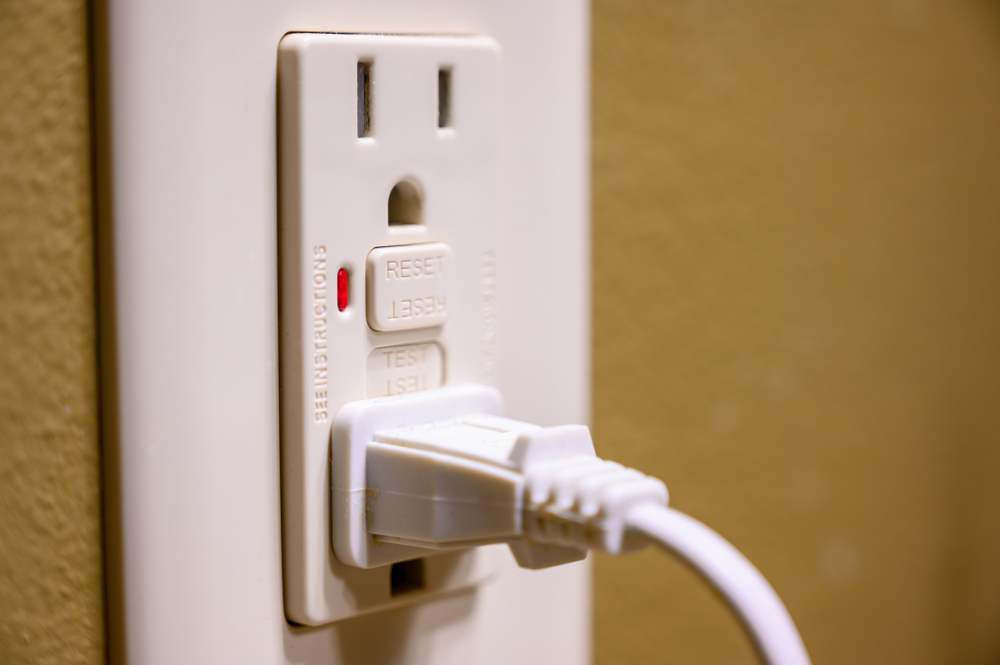You may notice outlets in your home or business that feature small buttons between the plug and/or lights near the outlet. These are likely GFCI plugs. GFCI stands for ground fault circuit interrupter. What this means is that the plug itself is able to monitor the balance of electrical flow into the plug and electrical flow out of the plug into an appliance or other electrical device. This increases safety for your home or business because at the first sign of an issue the outlet can cut power. In this article we will discuss how to tell the difference between outlets, how outlets work, and code requirements for these outlets. If you have specific questions or electrical projects for your home or business in Greater Boston, the team at Cardoso Electrical Services can help. We provide electrical services including installations, troubleshooting, and more.
What Are GFCI Outlets & How Do They Work?
As mentioned above, a GFCI is a ground fault circuit interrupter. It is a safety tool for any electrical system. It can prevent fatal electric shocks by cutting its own power when a short occurs. In a normal outlet if there is a short, power can still continue flowing to that outlet and can lead to electrical emergencies. A GFCI outlet cuts the power after a short. This is different from a circuit breaker which cuts power to an entire circuit in your home when the circuit gets overloaded.
Where/When Should I Install GFCI Outlets
A great application for a GFCI outlet is any room that can be exposed to water. Water and electricity do not mix and spilling any liquid on a plug can lead to a short. For example, outlets in your bathroom, kitchen, or outdoor areas are all good places to use GFCI technology. If water were to splash on an outlet and cause a short, the outlet would immediately cut its own power preventing electrical shock. If you have standard outlets in areas of your home that can get wet or that have risk of shorts, you should replace them with a GFCI outlet. Not only does it cut its own power, but it can also cut the power to any outlets downstream of it. For example, if you plug an extension cord into a GFCI outlet and the the outlet cuts its power it also cuts power to the extension cord.
Are GFCI Outlets Required?
Since the 70s most outdoor spaces in homes are required to use GFCI protection. Additionally, bathrooms, kitchens, and garages are all spaces that are required to use GFCI outlets or other protection in order to be up to code. If you have questions about code for residential or commercial properties in Massachusetts, please give us a call. We can help with an inspection or regular maintenance to ensure that your property is up to code.
Electrical Work in Greater Boston
If you own a home, manage a property, or need electrical work for your business, our team can help. We travel throughout Greater Boston to provide installations, repairs, and more to property owners. For more information, click below to request a consultation.

